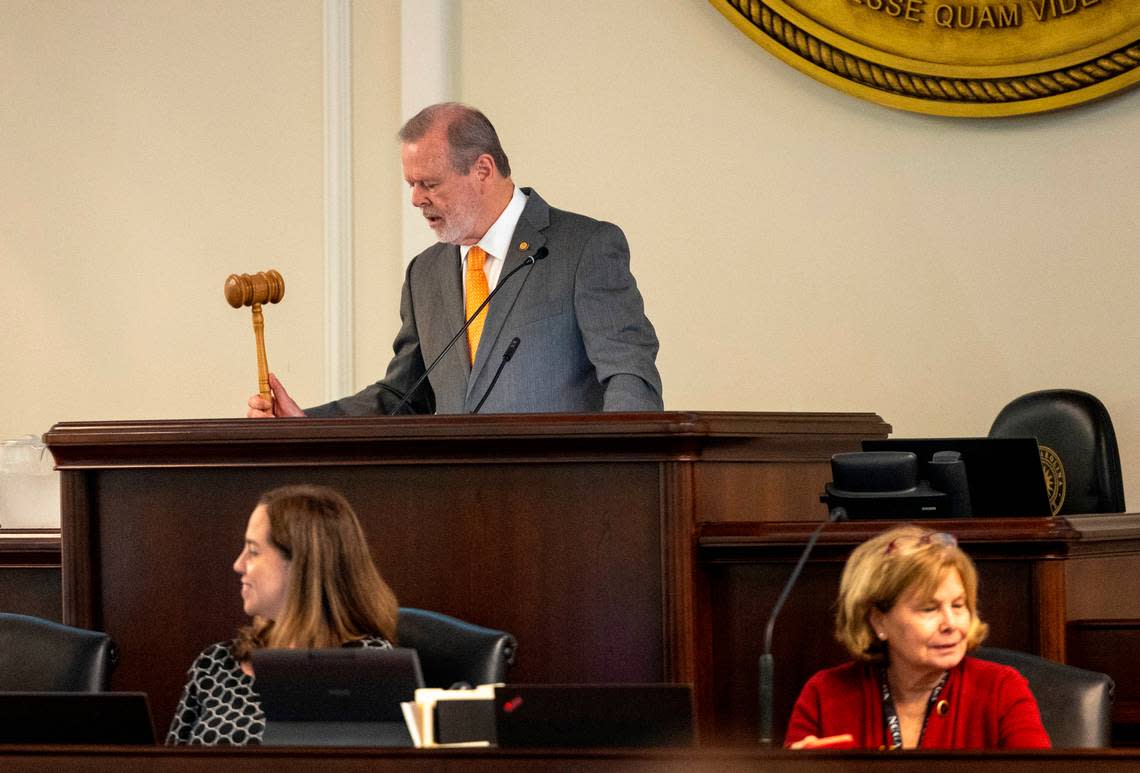Taxpayer rebates are on the table as Republican leaders discuss the state budget

There’s a chance taxpayers could get some of their money back from the state government in the budget this year, a top Republican told reporters on Thursday.
Senate leader Phil Berger, an Eden Republican, said that budget writers are looking into whether there is enough money in an expected surplus to give taxpayers a rebate this year, but cautioned it is only at the discussion point.
The state has a $1.4 billion revenue surplus, The News & Observer previously reported, and the expected “slow-cession” never materialized.
“Some of the questions that I’ve asked would be: OK, how much would we need to allocate to give $1,000 to every taxpayer?” Berger said. “How much would we need to allocate to give $1,000 to each head of household? Or a certain amount to folks that have dependent children?”
Berger said there aren’t solid answers on the questions yet. He wants the amount to be “significant,” not $100 to $150.
“We’re still looking at it, and I don’t think there’d be an interest in doing it unless the amount we could send out would be an amount that would make a difference — more than a half a tank of gas and stuff like that. By the way, under the Biden administration, a tank of gas has gotten a whole lot more expensive,” Berger said.
The national average price of a gallon on gas on May 9, according to AAA, is $3.64 for regular grade. In North Carolina, the average price is $3.39 per gallon.
Republicans have considered issuing tax rebates in the past with a budget surplus, but in recent years have put it in savings funds instead.
In 2019, with a smaller revenue surplus, Berger and Republican House Speaker Tim Moore wanted to give tax rebates, The N&O previously reported. But the plan did not come to fruition, and 2019’s House Bill 74, the Taxpayer Refund Act, stalled in a House committee.
Budget timing this year
Republicans, who have total control of the General Assembly and hence the power to write the budget, have also indicated support for funding of child care, and the Senate has already passed a bill allocating about $463 million more for the Opportunity Scholarship program, which provides private school tuition vouchers.
Lawmakers are also looking at additional raises or bonuses for state employees and teachers. Democratic Gov. Roy Cooper has called for $1,500 retention bonuses for teachers and $1,000 to $1,500 for state employees, which would likely use money from the surplus.
The focus of every legislative short session, which is held in even-numbered years, is to make adjustments to the two-year spending plan passed in odd-numbered years. Often, the budget process is drawn out well into the new fiscal year that starts July 1, passing months late or even not at all, which is what happened in 2019.
Signs so far this year point to a timely June budget. For now, anyway.
Berger said that the Senate’s budget chairs report they are “still on track to be voting on the budget in early June.”
But the next two weeks will be crucial. House budget leaders are meeting as well. Berger said they’ll know in the next two weeks “whether or not things are gonna go off the rails, or continue. Right now it seems like things are moving, from a timing standpoint, to where we should be able to go.”
